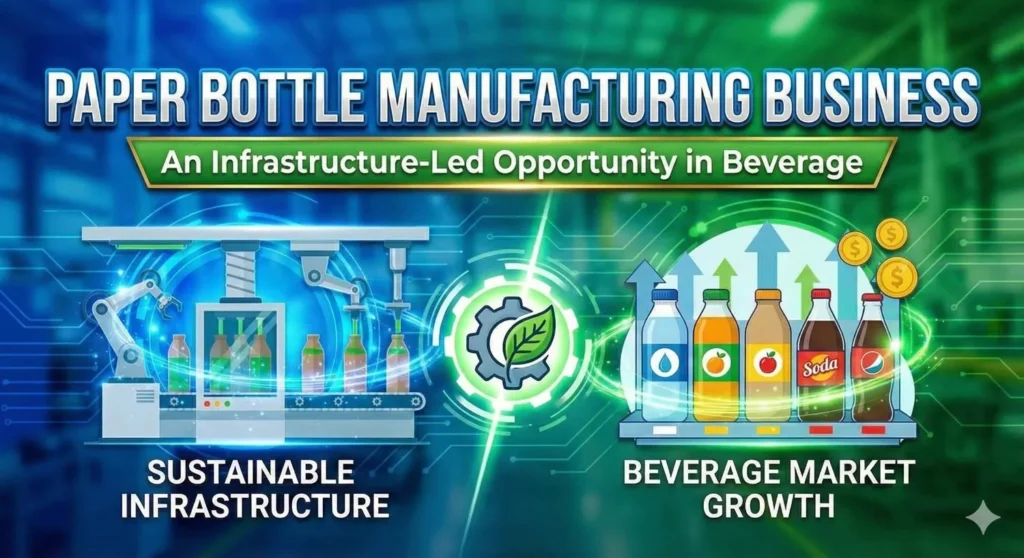In today’s fast-paced and consumption-driven world, waste management has become one of the biggest challenges. As landfills continue to overflow and environmental concerns mount, the demand for effective recycling solutions is growing rapidly. Starting a recycling business not only contributes to environmental conservation but also offers significant economic benefits. With the right strategy, planning, and execution, you can transform waste into a profitable venture, playing a vital role in building a sustainable future.
Contents
- 1 Why a Recycling Business is a Smart and Sustainable Choice
- 1.1 Step-by-Step Guide to Starting a Recycling Business
- 1.2 1. Research the Market and Choose a Niche
- 1.3 2. Create a Detailed Business Plan
- 1.4 3. Register Your Business and Obtain Licenses
- 1.5 4. Select the Right Location and Setup Infrastructure
- 1.6 5. Procure Equipment and Technology
- 1.7 6. Establish Collection and Supply Channels
- 1.8 7. Hire and Train Staff
- 1.9 8. Market Your Recycling Business
- 1.10 9. Ensure Compliance and Sustainability
- 1.11 10. Scale Your Business
- 1.12 Conclusion
Why a Recycling Business is a Smart and Sustainable Choice
The recycling industry has evolved into a robust and diverse sector, covering materials like paper, plastic, metal, glass, and e-waste. As awareness around sustainability and circular economy grows, both consumers and governments are prioritizing recycling efforts. This presents budding entrepreneurs with a golden opportunity to capitalize on the rising demand for eco-friendly waste management solutions.
A recycling business not only helps reduce pollution but also creates employment opportunities, conserves resources, and reduces the carbon footprint. Moreover, governments and municipal bodies often support recycling initiatives through subsidies, tax benefits, and technical assistance, making the business model even more attractive.
See Also: Business in Mizoram
Step-by-Step Guide to Starting a Recycling Business
Starting a recycling business requires a structured approach and careful planning. Below is a step-by-step breakdown to help you begin your entrepreneurial journey:
1. Research the Market and Choose a Niche
Before diving in, conduct thorough market research. Understand the types of recyclable materials in demand in your region—these could include plastic, paper, cardboard, glass, electronics, rubber, batteries, textiles, or construction waste. Evaluate the competition, pricing trends, supply sources, and customer base.
Once your research is complete, select a niche based on availability of raw materials and local demand. For instance:
-
Plastic Recycling: High in volume, but requires sorting and cleaning.
-
E-waste Recycling: Lucrative due to precious metals but needs technical handling.
-
Paper Recycling: Easier to process and ideal for beginners.
-
Scrap Metal Recycling: High value but dependent on fluctuating metal prices.
Choosing the right niche will determine the type of infrastructure, licenses, and technology you’ll require.
2. Create a Detailed Business Plan
A well-crafted business plan is essential for any successful recycling business. Your plan should include:
-
Executive summary
-
Business objectives and mission
-
Market analysis
-
Operational plan
-
Types of materials to recycle
-
Equipment and facility requirements
-
Marketing and sales strategies
-
Financial projections
-
Funding sources
This document will not only guide your execution but also help attract investors or secure loans.
3. Register Your Business and Obtain Licenses
Depending on your country or state, you’ll need to register your recycling business with appropriate authorities. Common steps include:
-
Choosing a business structure (sole proprietorship, partnership, private limited company, etc.)
-
Getting a business name and registration number
-
Applying for an environmental clearance certificate
-
Acquiring trade licenses from local authorities
-
Complying with pollution control regulations
-
Registering for taxes such as GST/VAT
Proper licensing ensures legal compliance and builds credibility with clients and suppliers.
4. Select the Right Location and Setup Infrastructure
Location is crucial to your recycling operations. You need space for storage, sorting, cleaning, and processing recyclable materials. Consider proximity to waste sources, transportation access, labor availability, and zoning regulations.
The infrastructure should include:
-
Collection and storage bins
-
Weighing and sorting systems
-
Conveyors or compactors
-
Shredders, balers, or crushers (depending on the material)
-
Safety equipment for staff
-
Office space and record-keeping systems
Make sure the facility is secure, compliant with environmental norms, and scalable for future expansion.
5. Procure Equipment and Technology
The success of your recycling business largely depends on the efficiency of your equipment. Some commonly used machines include:
-
Plastic granulators
-
Paper pulping machines
-
Glass crushers
-
Magnetic separators (for metals)
-
Incinerators or composters (for organic waste)
-
E-waste dismantling units
Choose reliable vendors offering after-sales support, spare parts, and warranties. Investing in automation and energy-efficient machines can increase profitability in the long run.
6. Establish Collection and Supply Channels
Develop partnerships with waste collection agencies, scrap dealers, local municipalities, residential societies, and commercial establishments. Offer incentives or tie-ups to ensure a steady flow of recyclable materials.
Simultaneously, identify buyers or manufacturers who can use your recycled output as raw materials—like paper mills, plastic manufacturers, construction companies, etc.
You can also explore B2B marketplaces, recycling exchanges, or government procurement platforms to sell your recycled goods.
See Also: Zinc Sulphate Fertilizer
7. Hire and Train Staff
Hire a team that understands safety protocols, material handling, and machine operation. Key roles include:
-
Machine operators
-
Waste sorters and cleaners
-
Logistics and transportation staff
-
Administrative and marketing personnel
Invest in safety training, proper gear, and first-aid to minimize workplace accidents. Encourage a culture of innovation and responsibility to drive long-term growth.
8. Market Your Recycling Business
Creating awareness is vital to your recycling business. Use both online and offline channels to promote your services.
Some ideas include:
-
Launch a website with your services, case studies, and contact info
-
Create social media pages highlighting your sustainability impact
-
Distribute brochures and conduct recycling awareness workshops
-
Collaborate with NGOs and schools for recycling drives
-
Offer corporate sustainability solutions
Branding your business as an eco-friendly and reliable service provider will help build trust and attract more clients.
9. Ensure Compliance and Sustainability
Running a recycling business involves handling various types of waste, which must be treated as per government guidelines. Regular audits, proper documentation, waste tracking, and responsible disposal of non-recyclables are essential.
Incorporate sustainable practices such as:
-
Using renewable energy
-
Water recycling within the facility
-
Emission control systems
-
Implementing zero-waste-to-landfill policies
Being compliant and sustainable not only reduces legal risks but also attracts eco-conscious partners and customers.
10. Scale Your Business
Once your operations are stable, explore opportunities to grow. Some expansion strategies include:
-
Diversifying into new waste categories
-
Setting up collection centers in multiple cities
-
Franchising your recycling model
-
Offering waste consultancy and training services
-
Exporting recycled products
Stay updated on government schemes, global trends, and new recycling technologies to stay ahead of the competition.
See Also: Concrete Admixture Production
Conclusion
Starting a recycling business is more than just a commercial opportunity—it’s a chance to make a lasting impact on the environment. By turning waste into wealth, entrepreneurs can tap into a high-potential industry while supporting global sustainability goals. With strategic planning, the right tools, and an eco-conscious mindset, you can build a successful enterprise that not only earns profit but also earns respect.
As the world shifts towards greener living, the recycling sector is set to grow exponentially. Whether it’s plastic, paper, or electronics—waste is no longer a problem; it’s a resource. And with the right approach, your recycling business can become a leader in the green revolution.




